I am creating a portrait project that highlights adults that have been diagnosed with ADHD, to start a discussion that may inspire others to have a closer look at their mental health and to help people understand more about how ADHD is effecting people.
I’m looking for adults that have been diagnosed with ADHD and are interested in sharing their story and having their portrait taken.
Anyone interested can reach me at: ryanwalterwagner@gmail.com
I met up with each person for a chat about ADHD and to take photos. We would spend time walking and talking around their chosen location. After we parted ways, I followed up with a simple question for each person to answer;
What does ADHD mean to you?
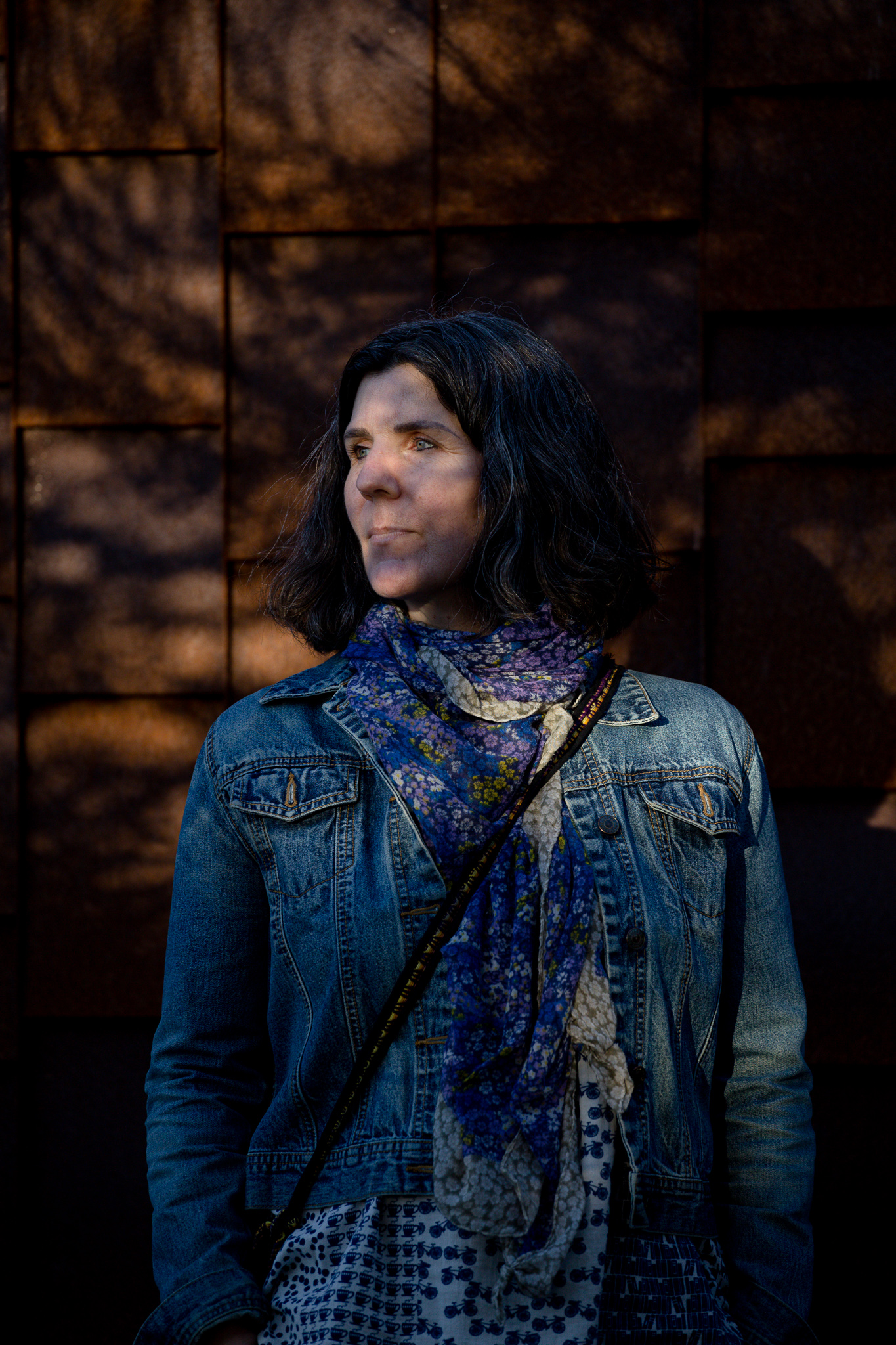
Roberta (Robbie) Macdonald:
It's an explanation, not an excuse.
Discovering my ADHD brain in mid-life has provided me with an understanding of why so many of the normative ways of functioning and working in society caused me tremendous distress.
I've come to realize that I'm not deeply flawed and lacking in character. Rather, I have a beautifully unique brain that sees the world in achingly exquisite ways. I find patterns where others see chaos. The natural world comes into my awareness all at once and it takes my breath away. This is not a deficit, it's an invitation to appreciation.
While I have much to learn about creating sustainable ways of existing in the toxic structures of capitalism, I do feel that getting to know the whys of neurodivergence offers me some peace and a growing sense of freedom.
Getting to know people that also grapple with ADHD has opened up my world in surprising and magnificent ways. Co-hosting HSIHADHD with Jordan fills my heart and expands my ideas of what's possible.
It's an explanation, not an excuse.
Discovering my ADHD brain in mid-life has provided me with an understanding of why so many of the normative ways of functioning and working in society caused me tremendous distress.
I've come to realize that I'm not deeply flawed and lacking in character. Rather, I have a beautifully unique brain that sees the world in achingly exquisite ways. I find patterns where others see chaos. The natural world comes into my awareness all at once and it takes my breath away. This is not a deficit, it's an invitation to appreciation.
While I have much to learn about creating sustainable ways of existing in the toxic structures of capitalism, I do feel that getting to know the whys of neurodivergence offers me some peace and a growing sense of freedom.
Getting to know people that also grapple with ADHD has opened up my world in surprising and magnificent ways. Co-hosting HSIHADHD with Jordan fills my heart and expands my ideas of what's possible.
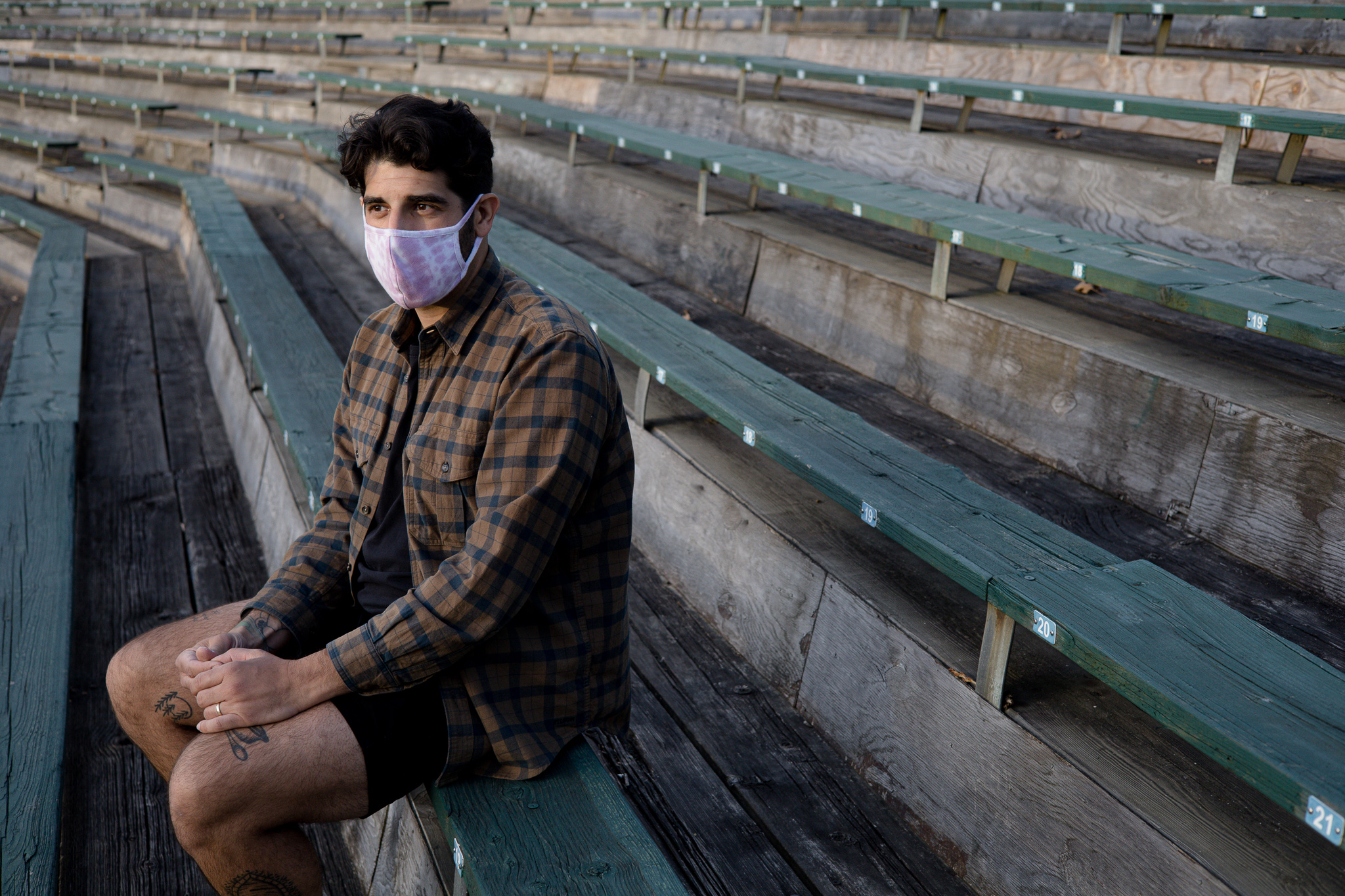
Dominic Maggiolo:
ADHD is reflecting on my life previous to my diagnosis, most importantly my childhood, and augmenting how I perceived myself and my relationships. ADHD means being more compassionate to my younger self so that I can investigate how I cope. It's made me more humble - I can now put some of my defences down.
ADHD is reflecting on my life previous to my diagnosis, most importantly my childhood, and augmenting how I perceived myself and my relationships. ADHD means being more compassionate to my younger self so that I can investigate how I cope. It's made me more humble - I can now put some of my defences down.
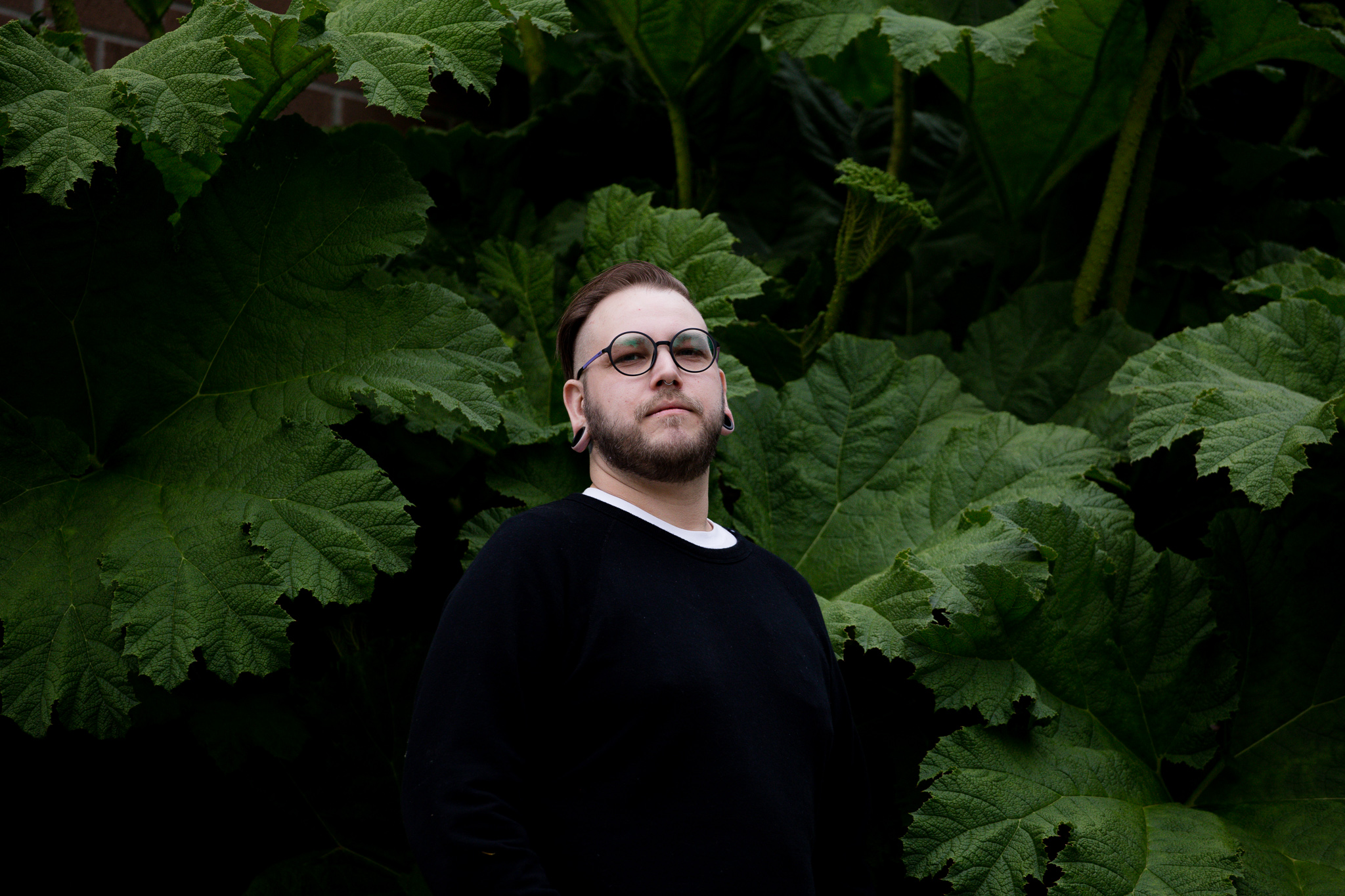
Jake Creamore:
This is a question I've been trying to prepare an answer for since the day I met you for the shoot. I could ramble on (and on and on and on) about all the quirks, bad habits, frustrations, and feelings of lost time and opportunities because of my adult diagnosis. I had a really great time speaking with you that day and I don't feel as though I quite have the ability to sum up all the various aspects of ADHD we spoke about. I have continued to follow the project and have really enjoyed the different perspectives that I have seen that sometimes mimic my own and other times feel entirely alien to me.
If the question was for a single word to describe what ADHD means to me I would choose "Understanding". My diagnosis and subsequent medication has not had the impact I expected based on my hours of hyper focused reading online This isn't to say that they have not had any impact, rather it was less of a night and day effect but more of a glasses on or off effect in my experience, things feel less blurry and my perspective is different, more clear almost. The greatest thing it gave me was the word I mentioned earlier, understanding. I understand some of my quirks, bad habits, flaws and frustrations much better now that I have something to relate them to. I want to point out that I used the word relate, not blame. I can't blame these negative things on neurodivergence because it's not like they have been 100% constant in my life. These negatives have waxed and waned over the years, ultimately due to my own choices and actions or I suppose more accurately the lack of choices or actions. The diagnosis has allowed me to understand myself in a better way and to stop comparing myself to others on a 1 to 1 scale. I understand that my brain processes things differently, it does not mean it is worse than neurotypical people, it just means I need a different viewpoint or set of tools to accomplish certain things.
I also understand that some of my favourite personality traits are things that come with ADHD, my ability to hyperfocus, my ability to throw myself 110% into something I am interested in, those (sometimes) well-timed bursts of emotional and physical energy that can change the course of a day. This comes at the expense of other traits that I would prefer not to have such as not knowing if I am going to be uncomfortable, silent, and awkward or an aggressive, loud, rambling opinion-machine in social settings. Am I going to sneeze out some unrelated Wikipedia fact I read 3 months ago midway through a story someone else is telling because my brain found some connection? Or will I be the person telling the story in an engaging, informative way? As someone who lives on the nerdier side of culture, I have almost come to view it as a character build sheet in any classic Role-Playing Game, I have positives and negatives but the reality is that it's just a set of points distributed in a different way. It doesn't make me better or worse, just a different set of traits. The only issue that comes with a later in life diagnosis is that I have been trying to shoe-horn my build into a role I was not built for. I'm now learning how to be me in a world I've lived in my entire life. I'm more aware of the things I need to live my life in the best way for me, this led to gaining more confidence to express what I need to others and what pitfalls come along with it.
This is a question I've been trying to prepare an answer for since the day I met you for the shoot. I could ramble on (and on and on and on) about all the quirks, bad habits, frustrations, and feelings of lost time and opportunities because of my adult diagnosis. I had a really great time speaking with you that day and I don't feel as though I quite have the ability to sum up all the various aspects of ADHD we spoke about. I have continued to follow the project and have really enjoyed the different perspectives that I have seen that sometimes mimic my own and other times feel entirely alien to me.
If the question was for a single word to describe what ADHD means to me I would choose "Understanding". My diagnosis and subsequent medication has not had the impact I expected based on my hours of hyper focused reading online This isn't to say that they have not had any impact, rather it was less of a night and day effect but more of a glasses on or off effect in my experience, things feel less blurry and my perspective is different, more clear almost. The greatest thing it gave me was the word I mentioned earlier, understanding. I understand some of my quirks, bad habits, flaws and frustrations much better now that I have something to relate them to. I want to point out that I used the word relate, not blame. I can't blame these negative things on neurodivergence because it's not like they have been 100% constant in my life. These negatives have waxed and waned over the years, ultimately due to my own choices and actions or I suppose more accurately the lack of choices or actions. The diagnosis has allowed me to understand myself in a better way and to stop comparing myself to others on a 1 to 1 scale. I understand that my brain processes things differently, it does not mean it is worse than neurotypical people, it just means I need a different viewpoint or set of tools to accomplish certain things.
I also understand that some of my favourite personality traits are things that come with ADHD, my ability to hyperfocus, my ability to throw myself 110% into something I am interested in, those (sometimes) well-timed bursts of emotional and physical energy that can change the course of a day. This comes at the expense of other traits that I would prefer not to have such as not knowing if I am going to be uncomfortable, silent, and awkward or an aggressive, loud, rambling opinion-machine in social settings. Am I going to sneeze out some unrelated Wikipedia fact I read 3 months ago midway through a story someone else is telling because my brain found some connection? Or will I be the person telling the story in an engaging, informative way? As someone who lives on the nerdier side of culture, I have almost come to view it as a character build sheet in any classic Role-Playing Game, I have positives and negatives but the reality is that it's just a set of points distributed in a different way. It doesn't make me better or worse, just a different set of traits. The only issue that comes with a later in life diagnosis is that I have been trying to shoe-horn my build into a role I was not built for. I'm now learning how to be me in a world I've lived in my entire life. I'm more aware of the things I need to live my life in the best way for me, this led to gaining more confidence to express what I need to others and what pitfalls come along with it.

Micaela Pirritano:
When you first get diagnosed with ADHD, a lot of people like to tell you what it means for you. My psychiatrist told me I had a deficit of attention that was likely genetic. I think it's more multifaceted than that. My ADHD brings so much joy and so much hardship into my life.
ADHD makes me feel like I'm constantly behind while trying to keep up with the everyday rhythm of contemporary life. It means that sometimes I crash hard and need help from others to pick up the pieces. It means that sometimes I interrupt the people I love, or I snap at them, or I have trouble paying attention to things that I'm not directly interested in. It can also mean sensory overload. I can get overwhelmed by too much stimuli and sometimes I have trouble processing my feelings. It can feel like you have unlocked potential that you're just never able to fully harness.
Honestly, the hardest part has been the low self-esteem and the isolation that comes from being neurodiverse. When you grow up without a diagnosis but struggle with peer relationships because of your symptoms, you feel broken. You feel unworthy of love because you don't fit the neurotypical mold. When I was diagnosed, it felt increasingly isolating at first, but as I learned to see the good in my ADHD, I found true sustainable self-love. I also worked on skills to support self-development and self-advocacy. It's been and still is hard, but it has allowed me to see the beautiful sides of my ADHD.
ADHD means that I get to love with all my heart. It means I have a strong sense of justice and that I care deeply for the well-being of others. It means I'm creative and incredibly resourceful. It has even helped me create and manage a business! It helps me be a better therapist to neurodiverse kiddos because even if I don't fully get their experiences, I kind of "get it" in some way and can hold space to help others navigate this beautiful and scary world.
Today, I visited my mom and asked her if she ever thought something was wrong when I was a kid. She said "I knew you learned differently and needed a lot of help from me to stay organized, but you were so determined and always had a grand vision of what you wanted to do. I just saw you, supported that, and accepted you for who you are."
Do I wish I'd been diagnosed earlier? Maybe. I probably would have felt less alone. Do I wish I didn't have ADHD? Absolutely not. We need neurodiverse folks on this earth. I'm very proud and touched that I get to contribute to making the world a more neurodiverse-affirmative place.
When you first get diagnosed with ADHD, a lot of people like to tell you what it means for you. My psychiatrist told me I had a deficit of attention that was likely genetic. I think it's more multifaceted than that. My ADHD brings so much joy and so much hardship into my life.
ADHD makes me feel like I'm constantly behind while trying to keep up with the everyday rhythm of contemporary life. It means that sometimes I crash hard and need help from others to pick up the pieces. It means that sometimes I interrupt the people I love, or I snap at them, or I have trouble paying attention to things that I'm not directly interested in. It can also mean sensory overload. I can get overwhelmed by too much stimuli and sometimes I have trouble processing my feelings. It can feel like you have unlocked potential that you're just never able to fully harness.
Honestly, the hardest part has been the low self-esteem and the isolation that comes from being neurodiverse. When you grow up without a diagnosis but struggle with peer relationships because of your symptoms, you feel broken. You feel unworthy of love because you don't fit the neurotypical mold. When I was diagnosed, it felt increasingly isolating at first, but as I learned to see the good in my ADHD, I found true sustainable self-love. I also worked on skills to support self-development and self-advocacy. It's been and still is hard, but it has allowed me to see the beautiful sides of my ADHD.
ADHD means that I get to love with all my heart. It means I have a strong sense of justice and that I care deeply for the well-being of others. It means I'm creative and incredibly resourceful. It has even helped me create and manage a business! It helps me be a better therapist to neurodiverse kiddos because even if I don't fully get their experiences, I kind of "get it" in some way and can hold space to help others navigate this beautiful and scary world.
Today, I visited my mom and asked her if she ever thought something was wrong when I was a kid. She said "I knew you learned differently and needed a lot of help from me to stay organized, but you were so determined and always had a grand vision of what you wanted to do. I just saw you, supported that, and accepted you for who you are."
Do I wish I'd been diagnosed earlier? Maybe. I probably would have felt less alone. Do I wish I didn't have ADHD? Absolutely not. We need neurodiverse folks on this earth. I'm very proud and touched that I get to contribute to making the world a more neurodiverse-affirmative place.

Ali Watson:
ADHD is something I used to see as a weakness. I was always embarrassed that I was that kid who could not keep their room clean or follow basic instructions. Why I couldn’t always follow a conversation or remember what I had just learned in class. I learned to put on my “mask” and get good at pretending I was present. When my “mask” started to falter, it became harder to hide my moments of what I call “mental vacations.” I had to find out for myself what I could do to cope with it.
ADHD is what helped me learn how to advocate for myself in a society where women get overlooked in the medical world all the time. I no longer see ADHD as a weakness. I see it as a strength. Sure, I still can’t keep my room clean worth shit... and I still might not always be able to follow the instructions on a recipe card... (plus my way often tastes better anyway ) but it’s part of who I am! It hasn’t inhibited my ability to be all the best (and weirdest) parts of myself.
ADHD is something I used to see as a weakness. I was always embarrassed that I was that kid who could not keep their room clean or follow basic instructions. Why I couldn’t always follow a conversation or remember what I had just learned in class. I learned to put on my “mask” and get good at pretending I was present. When my “mask” started to falter, it became harder to hide my moments of what I call “mental vacations.” I had to find out for myself what I could do to cope with it.
ADHD is what helped me learn how to advocate for myself in a society where women get overlooked in the medical world all the time. I no longer see ADHD as a weakness. I see it as a strength. Sure, I still can’t keep my room clean worth shit... and I still might not always be able to follow the instructions on a recipe card... (plus my way often tastes better anyway ) but it’s part of who I am! It hasn’t inhibited my ability to be all the best (and weirdest) parts of myself.
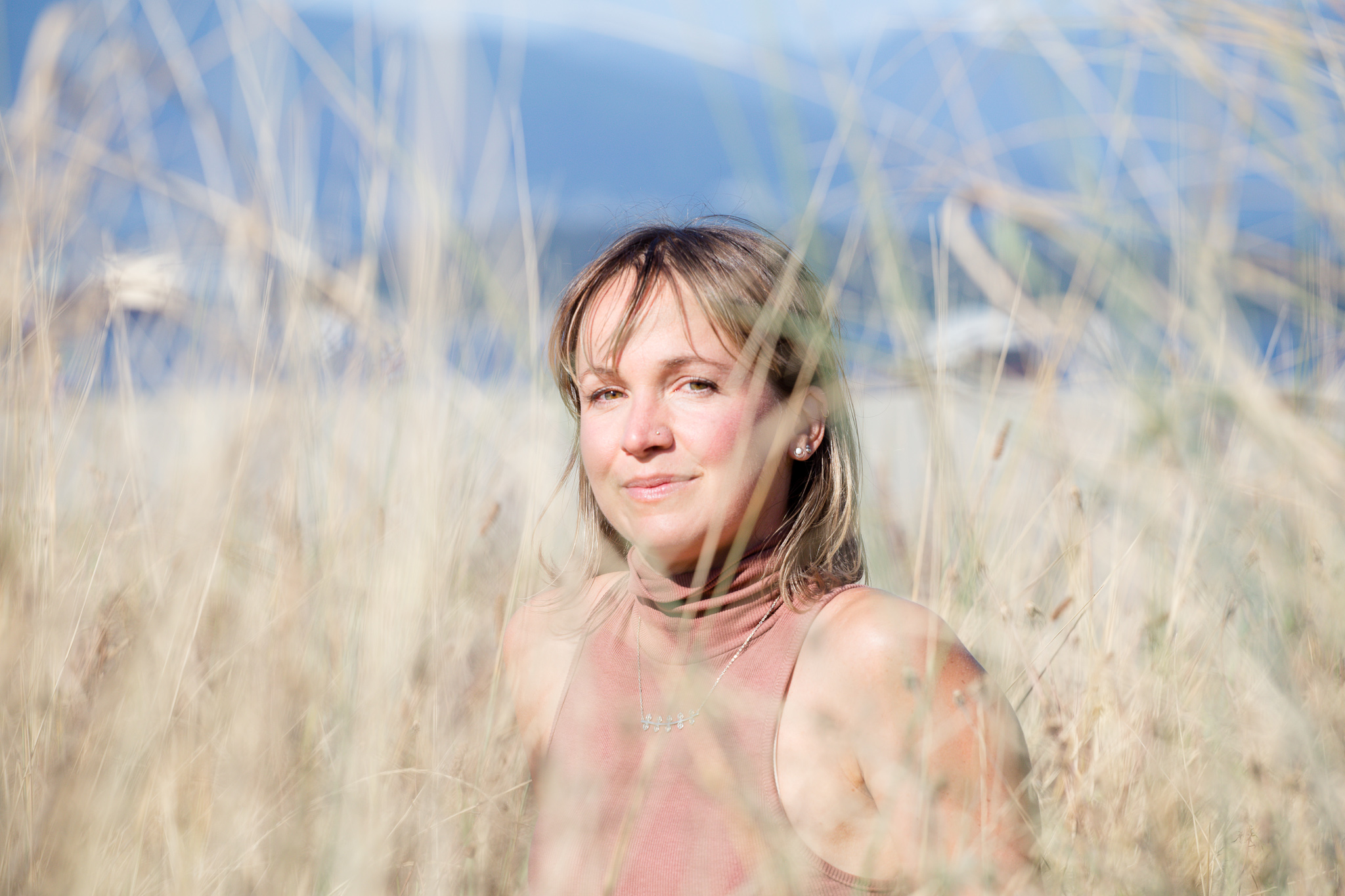
Lindsay Gough:
It’s that missing piece. The piece you thought you couldn’t find so you accepted that’s the way it is. And then bam. Life leads you on a journey to find it, some when they’re young, and for many they have to wait, maybe living their whole lives without ever finding it or even knowing it was missing. What’s a puzzle without all the pieces, a life without a full understanding? The understanding that your scattered brain doesn’t have to rule the way you live.
2 months ago, my best pal hesitantly brought to my attention that I might have ADHD. We had been chatting weekly over the course of a few months, in both our attempts to create our own businesses. I nearly missed our very first scheduled call as I was effortlessly floating through 2 feet of fresh snow in my new home in Whistler. I called her back on the chairlift, as people were shouting in pure bliss ‘this is the best day of my liiiiiiiiife!’ as they cruised down the slopes underneath. No friends on pow days…or meetings.
A few months later, her business is thriving, mine, well, ummm. I simply couldn’t do the work (but flip I had a fun winter!) My response every week when she’d question my accomplishments, would sound something along the lines of ‘living in the flow and the moment is the secret to life, right?’ My answers would always find a way to rationalize my behaviour. I simply resisted any and all forms of discipline.
Her husband got his diagnosis a couple years ago, and in so, she recognized similar symptoms in me. Her reluctance to tell me came from the stigma that comes along with ADHD. But on my journey of evolution and growth, her instinct was well received. I read an article she sent from a women who sounded just like me, her ADHD flew under the radar until she was 38, the same age I am now. It all resonated. The traits that made my life more challenging growing up, I now know were just a part of how I operate. I can now work with this neurodivergent brain of mine versus letting it work me. Give myself some grace and catch myself when I jump from thought to thought, idea to idea, filing my incessant pursuit of dopamine hits.
And now I fully recognize that ADHD is what makes me unique. My superpower that brings easy access to the flow, opportunities and connections; enjoying the simple things, the fun things, the fluffy snow and all the things that light me up. I’ve spent a lot of my adult life learning the power of presence and what it means to live from my heart vs my mind. We’re here to simply enjoy each day to the best we can. Life is now. Having ADHD unknowingly has made my journey more enjoyable, in spite of the hardships that have come along with it. I look forward to the rest of my life being able to deliberately choose what makes me happy and brings fulfillment with a wider lens of who I am.
I’ve been working with an ADHD coach since receiving my diagnosis, I’m learning a new way to live, rewiring my brain and changing my habits, gaining new tools to increase my productivity, all the while still having fun and trusting the process. I may find a few more puzzle pieces as I continue this life, but for now, I feel that the missing piece has been found, it’s in its place, the whole picture no longer has an empty void, it is complete. For now…
It’s that missing piece. The piece you thought you couldn’t find so you accepted that’s the way it is. And then bam. Life leads you on a journey to find it, some when they’re young, and for many they have to wait, maybe living their whole lives without ever finding it or even knowing it was missing. What’s a puzzle without all the pieces, a life without a full understanding? The understanding that your scattered brain doesn’t have to rule the way you live.
2 months ago, my best pal hesitantly brought to my attention that I might have ADHD. We had been chatting weekly over the course of a few months, in both our attempts to create our own businesses. I nearly missed our very first scheduled call as I was effortlessly floating through 2 feet of fresh snow in my new home in Whistler. I called her back on the chairlift, as people were shouting in pure bliss ‘this is the best day of my liiiiiiiiife!’ as they cruised down the slopes underneath. No friends on pow days…or meetings.
A few months later, her business is thriving, mine, well, ummm. I simply couldn’t do the work (but flip I had a fun winter!) My response every week when she’d question my accomplishments, would sound something along the lines of ‘living in the flow and the moment is the secret to life, right?’ My answers would always find a way to rationalize my behaviour. I simply resisted any and all forms of discipline.
Her husband got his diagnosis a couple years ago, and in so, she recognized similar symptoms in me. Her reluctance to tell me came from the stigma that comes along with ADHD. But on my journey of evolution and growth, her instinct was well received. I read an article she sent from a women who sounded just like me, her ADHD flew under the radar until she was 38, the same age I am now. It all resonated. The traits that made my life more challenging growing up, I now know were just a part of how I operate. I can now work with this neurodivergent brain of mine versus letting it work me. Give myself some grace and catch myself when I jump from thought to thought, idea to idea, filing my incessant pursuit of dopamine hits.
And now I fully recognize that ADHD is what makes me unique. My superpower that brings easy access to the flow, opportunities and connections; enjoying the simple things, the fun things, the fluffy snow and all the things that light me up. I’ve spent a lot of my adult life learning the power of presence and what it means to live from my heart vs my mind. We’re here to simply enjoy each day to the best we can. Life is now. Having ADHD unknowingly has made my journey more enjoyable, in spite of the hardships that have come along with it. I look forward to the rest of my life being able to deliberately choose what makes me happy and brings fulfillment with a wider lens of who I am.
I’ve been working with an ADHD coach since receiving my diagnosis, I’m learning a new way to live, rewiring my brain and changing my habits, gaining new tools to increase my productivity, all the while still having fun and trusting the process. I may find a few more puzzle pieces as I continue this life, but for now, I feel that the missing piece has been found, it’s in its place, the whole picture no longer has an empty void, it is complete. For now…
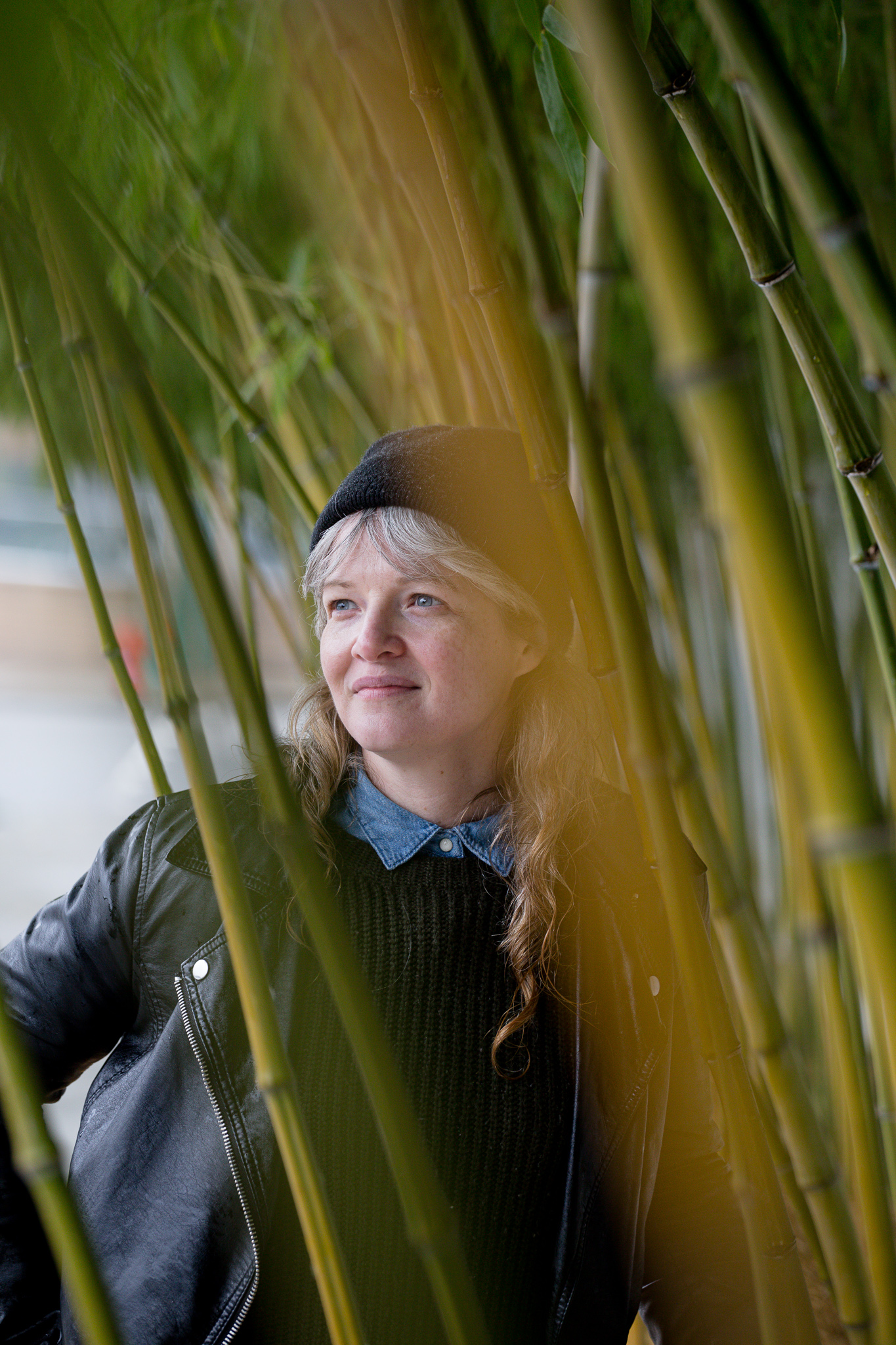
Santina Mozgeil:
ADHD is also struggling to make decisions, so I wrote two answers for your question. You can decide which one you prefer.
There was a meme I saw a year ago which said Adhd is the disorder of opposites. That really resonated with me. It said something like ADHD is having a genius brain but lacking the motivation to do anything with it's great ideas. It's like being able to dream up the best date in the world but not being able to plan it. Like being so in love and at the same time so paralyzed with the fear of rejection. Having the ability to hyperfocus on things of interest but not being able to focus enough to maintain a simple healthy daily routine. Hating anything that was time bound but only being able to succeed within strict time constraints. Being the chillest person you know and also the person who is constantly stressed. Always oversharing and undersharing at the wrong time. Being a really funny person 1 minute too late. or for me it's being overly willing to help others but not able to ask for help until someone was able to show me how to use my brain. It sounds weird, but you sort of need a manual of operations for ADHD which gives clear picture instructions for each little step for everything.
or
ADHD to me is an overly complicated brain, that is obsessed with efficiency and is addicted to dopamine.
ADHD is also struggling to make decisions, so I wrote two answers for your question. You can decide which one you prefer.
There was a meme I saw a year ago which said Adhd is the disorder of opposites. That really resonated with me. It said something like ADHD is having a genius brain but lacking the motivation to do anything with it's great ideas. It's like being able to dream up the best date in the world but not being able to plan it. Like being so in love and at the same time so paralyzed with the fear of rejection. Having the ability to hyperfocus on things of interest but not being able to focus enough to maintain a simple healthy daily routine. Hating anything that was time bound but only being able to succeed within strict time constraints. Being the chillest person you know and also the person who is constantly stressed. Always oversharing and undersharing at the wrong time. Being a really funny person 1 minute too late. or for me it's being overly willing to help others but not able to ask for help until someone was able to show me how to use my brain. It sounds weird, but you sort of need a manual of operations for ADHD which gives clear picture instructions for each little step for everything.
or
ADHD to me is an overly complicated brain, that is obsessed with efficiency and is addicted to dopamine.

Alexander MacPherson:
For the sake of brevity, it’s a blessing and a curse.
That being said, when I think about that statement, it begins feeling like a cop-out answer - broad enough to make sense and vague enough to mean nothing.
ADHD was the elephant in my room for a long time before I made it my albatross.
I mean that in the sense of it being a burden, but also analogously to the actual bird. It may have trouble getting off (or back on) the ground, but it can fly to great distances or to great heights when it endeavours to.
It makes me equal parts gifted and cumbersome and I accept the pros and cons of it.
———
Continuing with the bird analogies…
Sometimes I’m like a pigeon in that I have the gift of flight, but I just end up puttering around on the ground with seemingly little purpose.
Other times it makes me feel like a sparrow - skittish, but curious; prone to flight, but equally at the mercy of the very wind I’m riding.
Or perhaps a robin if I’m feeling confident or a jay if I’m being abrasively loud haha
Ideally, I try to work with it so I’m like a crow - analytical, creative, adaptive and still into shiny things.
Blah blah blah
Cue the digression.
For the sake of brevity, it’s a blessing and a curse.
That being said, when I think about that statement, it begins feeling like a cop-out answer - broad enough to make sense and vague enough to mean nothing.
ADHD was the elephant in my room for a long time before I made it my albatross.
I mean that in the sense of it being a burden, but also analogously to the actual bird. It may have trouble getting off (or back on) the ground, but it can fly to great distances or to great heights when it endeavours to.
It makes me equal parts gifted and cumbersome and I accept the pros and cons of it.
———
Continuing with the bird analogies…
Sometimes I’m like a pigeon in that I have the gift of flight, but I just end up puttering around on the ground with seemingly little purpose.
Other times it makes me feel like a sparrow - skittish, but curious; prone to flight, but equally at the mercy of the very wind I’m riding.
Or perhaps a robin if I’m feeling confident or a jay if I’m being abrasively loud haha
Ideally, I try to work with it so I’m like a crow - analytical, creative, adaptive and still into shiny things.
Blah blah blah
Cue the digression.
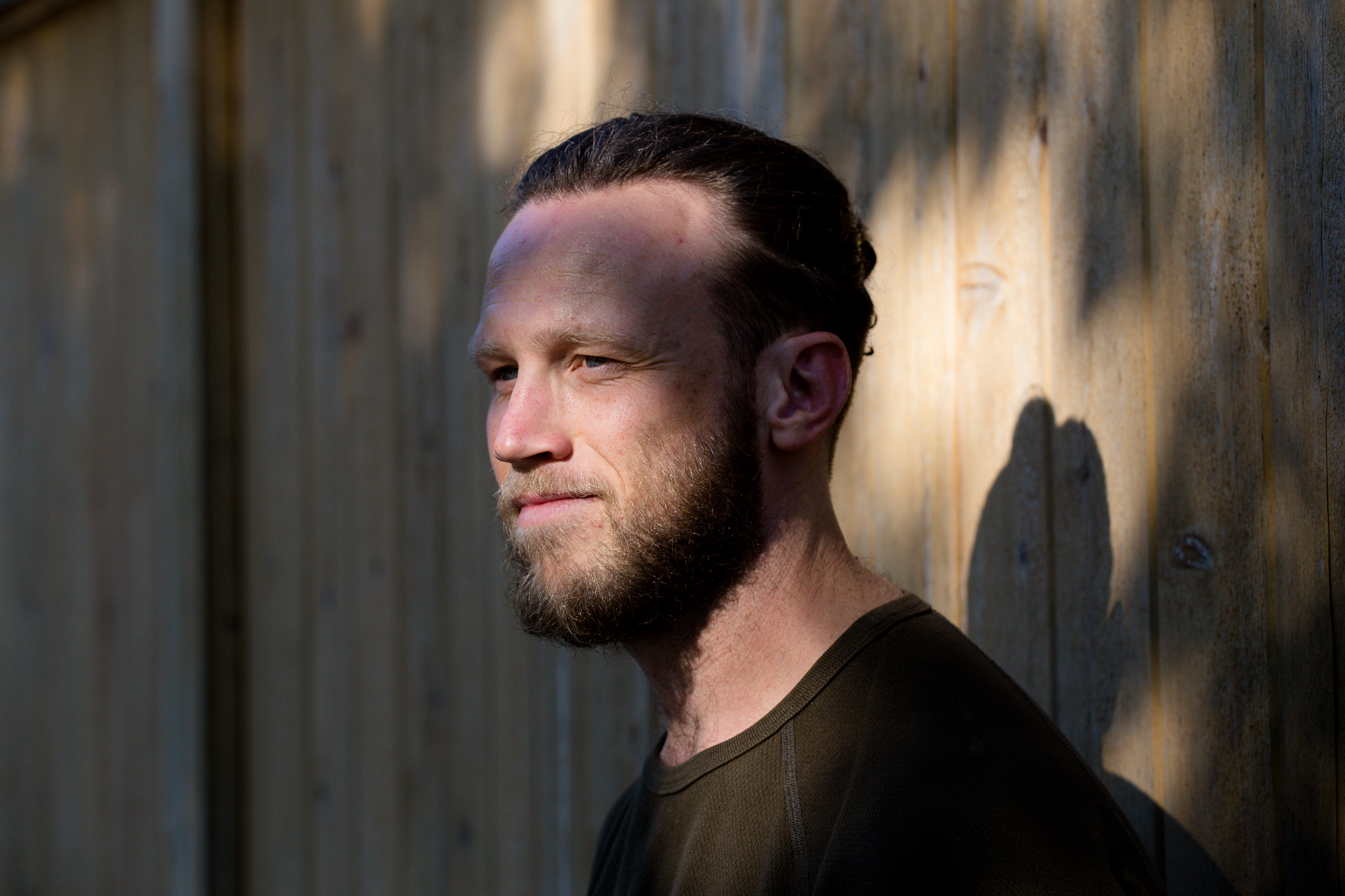
Eric Girard:
ADHD is enthusiastically starting 4 or 5 different things, assignments or projects, but only finishing one of them. No matter how long you spend on it, the one project that you finish you only really put it together right before the deadline.
ADHD is being the class comedian and risking your saturdays (detention) to make the kids in your class laugh.
ADHD is when you are telling a story and - mid sentence - your mind moves away from you to the next chapter.
ADHD is enthusiastically starting 4 or 5 different things, assignments or projects, but only finishing one of them. No matter how long you spend on it, the one project that you finish you only really put it together right before the deadline.
ADHD is being the class comedian and risking your saturdays (detention) to make the kids in your class laugh.
ADHD is when you are telling a story and - mid sentence - your mind moves away from you to the next chapter.
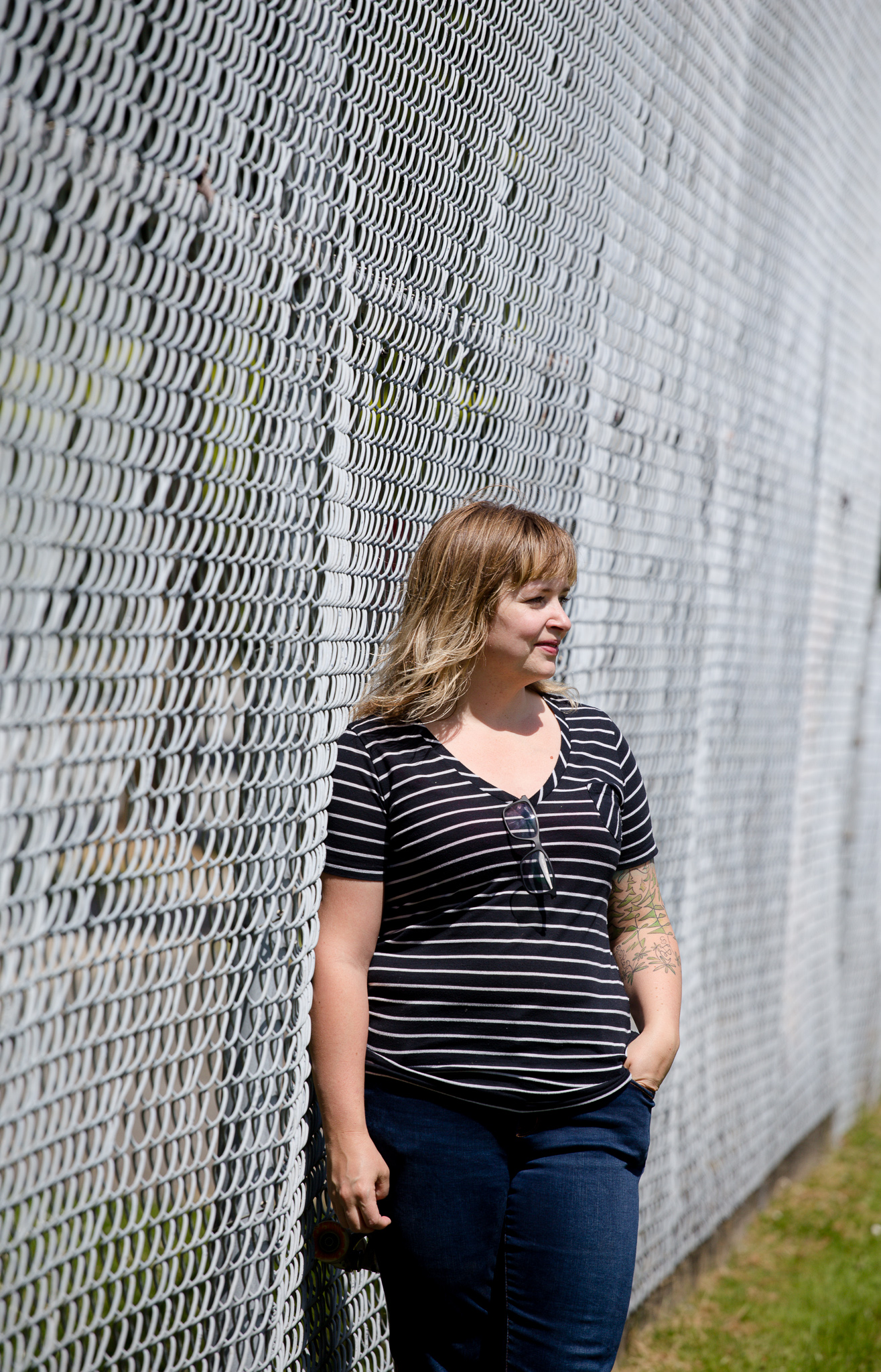
Nicole Thomson:
When it comes to thinking about what ADHD means to me, my reaction is a bit mixed.
There is a part of me that hates the idea of labels, maybe not wanting to be stereotyped/classified, so to speak… Or maybe I worry that ‘acceptance’ of a label like ADHD will spill over into excuses, and not pushing myself to do better.
In reality though, when finally connected the dots that my ‘anxiety’ was rooted in ADHD, it was a huge game changer (sidenote, I’m a therapist that focuses on procrastination, and it me relating way too easily with my clients with ADHD, that finally made me clue in… Embarrassed I missed it until then).
Seeing myself through the lense of ADHD makes a lot of sense. I love learning more about it, and talking to others with it. To each other, we do make sense, and can relate on the plus sides and the downsides. It’s great because that understanding and sharing of knowledge is the opposite of the shame/ stereotyping that might come with a diagnosis. The reality is, I share this label with some of the most creative and authentic people out there.
I can only speak for myself, but even though I’m still constantly trying to balance “working on it,” with acceptance; overall, I am actually glad I couldn’t fit in all of the boring boxes I was supposed to.
When it comes to thinking about what ADHD means to me, my reaction is a bit mixed.
There is a part of me that hates the idea of labels, maybe not wanting to be stereotyped/classified, so to speak… Or maybe I worry that ‘acceptance’ of a label like ADHD will spill over into excuses, and not pushing myself to do better.
In reality though, when finally connected the dots that my ‘anxiety’ was rooted in ADHD, it was a huge game changer (sidenote, I’m a therapist that focuses on procrastination, and it me relating way too easily with my clients with ADHD, that finally made me clue in… Embarrassed I missed it until then).
Seeing myself through the lense of ADHD makes a lot of sense. I love learning more about it, and talking to others with it. To each other, we do make sense, and can relate on the plus sides and the downsides. It’s great because that understanding and sharing of knowledge is the opposite of the shame/ stereotyping that might come with a diagnosis. The reality is, I share this label with some of the most creative and authentic people out there.
I can only speak for myself, but even though I’m still constantly trying to balance “working on it,” with acceptance; overall, I am actually glad I couldn’t fit in all of the boring boxes I was supposed to.
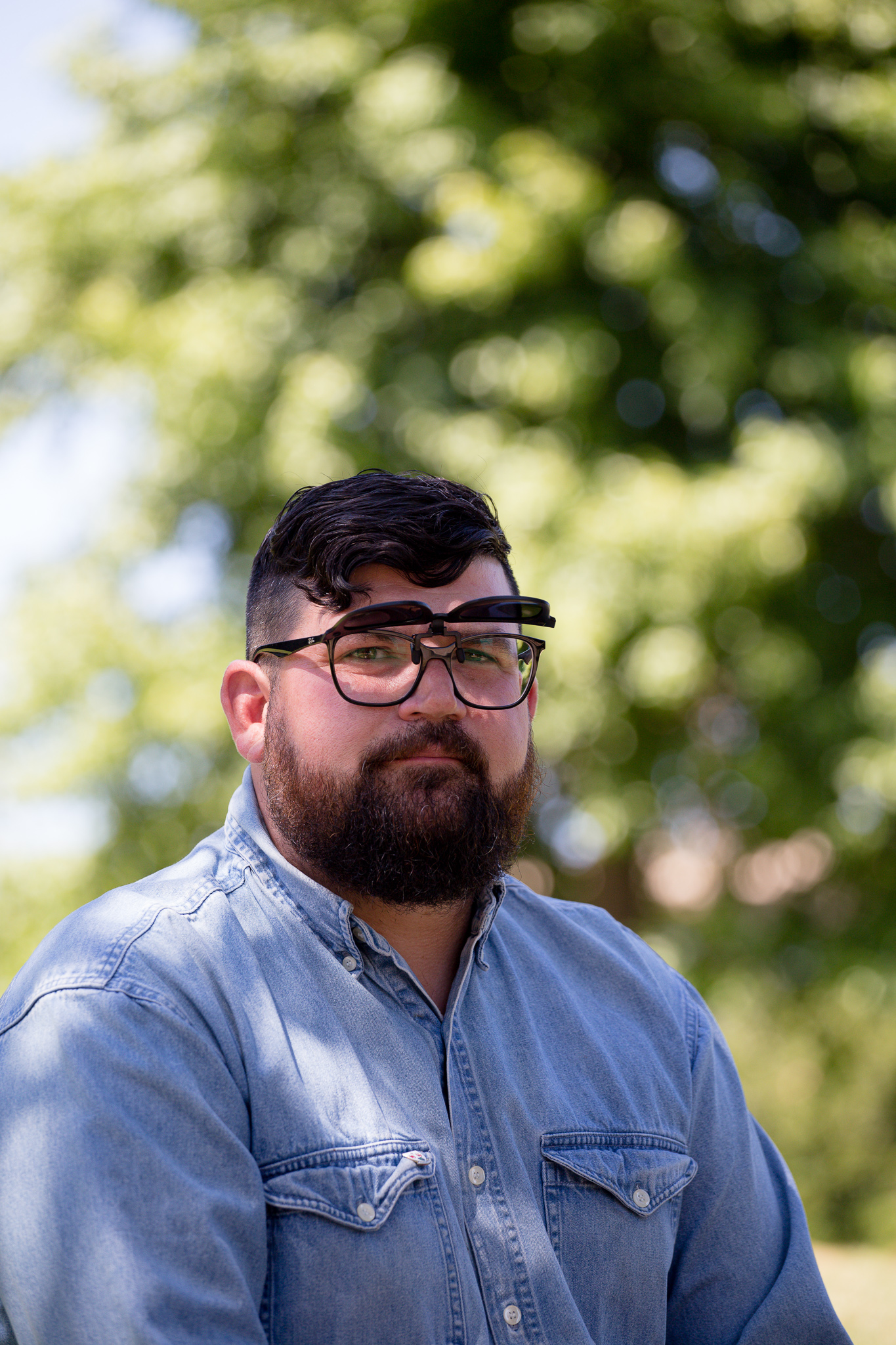
Ryan Hoben:
To me ADHD is a label put on kids that are “hard to manage”. What it actually is is just a part of my personality. It makes me who I am. Who wants to be manageable anyway?
To me ADHD is a label put on kids that are “hard to manage”. What it actually is is just a part of my personality. It makes me who I am. Who wants to be manageable anyway?

David McEwen:
It was coincidental that I first came across Ryan's Portrait Project, Adult ADHD on the day I first talked to my Doctor about the suspicions about what was bouncing around in my head. Since then, I've been diagnosed ADHD Combined and reflecting on what having ADHD means and all the things that could have been different. I try not to spend a lot of time on the 'what-ifs' in my life, but it was all I thought about in the early days.. Now my mind's focus is on moving forward while still learning about ADHD and how I can make things better for me and those around me. It's certainly given me pause on how to approach my life.. Time will tell how that goes I guess.
Ryan has been a familiar face to sit down and discussed our shared experiences on what being neurodivergent means to us. Having someone I knew, let alone had recently met and shot a few times together, was really helpful in kickstarting my experience to date. The resources shared and the, straight-up, open and honest talks we've had in the month+ since I found out about my ADHD - it's been something that is usually reserved for close family and friends.
It was coincidental that I first came across Ryan's Portrait Project, Adult ADHD on the day I first talked to my Doctor about the suspicions about what was bouncing around in my head. Since then, I've been diagnosed ADHD Combined and reflecting on what having ADHD means and all the things that could have been different. I try not to spend a lot of time on the 'what-ifs' in my life, but it was all I thought about in the early days.. Now my mind's focus is on moving forward while still learning about ADHD and how I can make things better for me and those around me. It's certainly given me pause on how to approach my life.. Time will tell how that goes I guess.
Ryan has been a familiar face to sit down and discussed our shared experiences on what being neurodivergent means to us. Having someone I knew, let alone had recently met and shot a few times together, was really helpful in kickstarting my experience to date. The resources shared and the, straight-up, open and honest talks we've had in the month+ since I found out about my ADHD - it's been something that is usually reserved for close family and friends.
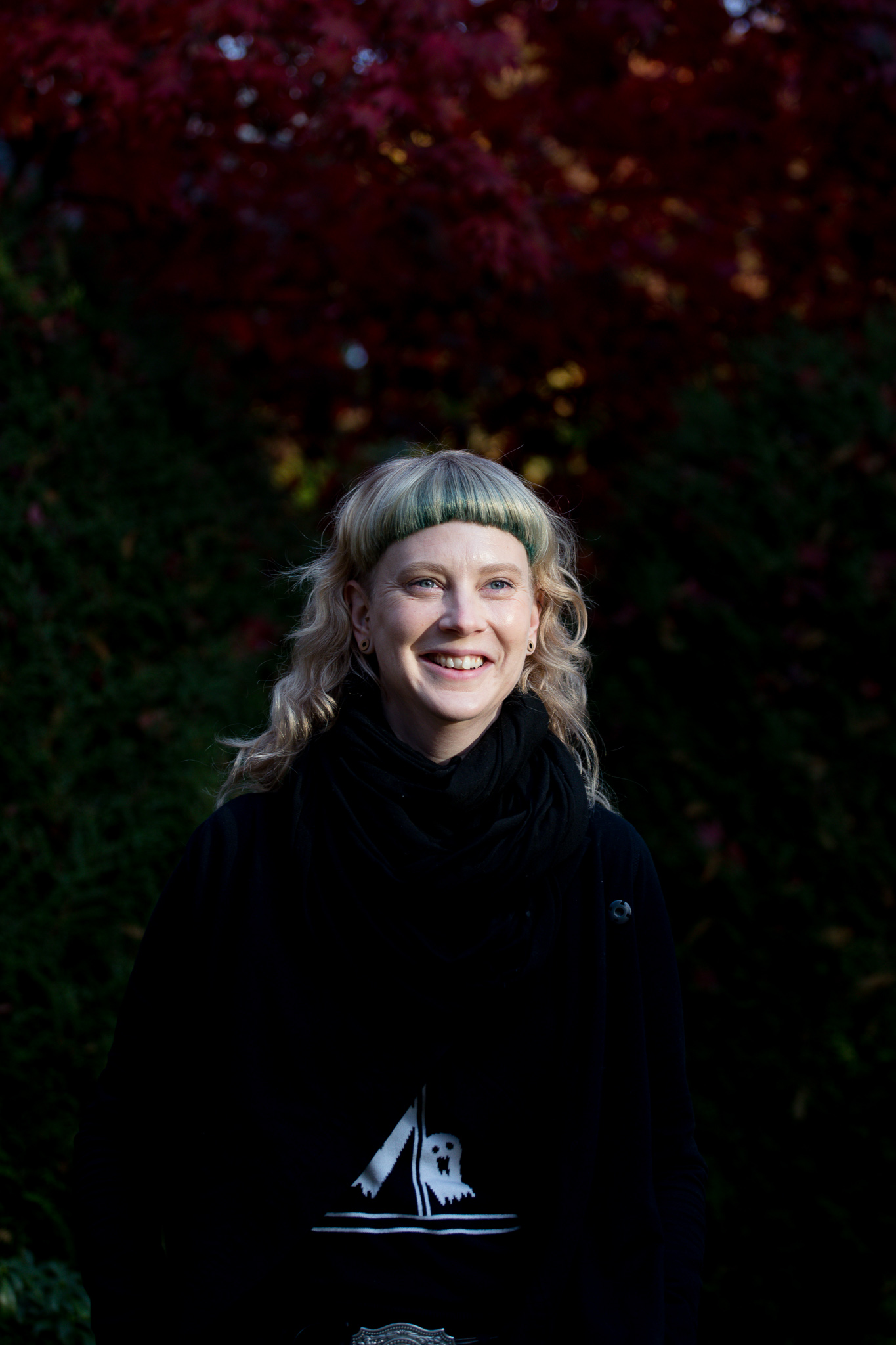
Ingrid Alice:
Standing on one leg, while the toes of the foot on the other leg paints a portrait (pretty good dexterity hey?), but you're so tired you're going to fall asleep standing up, except you're ready to run a short marathon, while bumping into the coffee table that's definitely been there for at least the entire year you've lived in your place, or did you move it and not notice? Hmm let me think about that while considering a new set up for the furniture in my living room, that gets me thinking, what style of coffee table is this anyway? Wow, 30 mins on Wikipedia learning about Swedish mid century tables sure is interesting.
You remember that you have an editing project that your boss gave you specifically, they said you were the best organized on the team and knew you'd get it done promptly and efficiently. Now how come your house is such a disaster, you think to yourself? You feel a wave of pride and then guilt.
Oh yeah, I need to mentally revisit that conversation that I had with my friend where maybe I hurt their feelings by being too blunt when they asked if I liked their new sculpture. Better write that down in my paper planner that's full of sticky notes so I remember to bring it up with my counsellor. You then have a sensation of disorientation, who can think when it's so bright in here?
Suddenly you are remembering verbatim that presentation you gave in 2nd year university sociology and lyrics to the song your band played at that festival last summer, you turn off your computer where you were watching a video about how to solder wires together for a lamp you're making from scratch. You have many varied interests. Meanwhile, you are mentally editing your schedule for next week, trying to find spots to squeak in naps and remember to do your laundry. All while reciting the Russian alphabet backwards because you taught yourself it last week.
Standing on one leg, while the toes of the foot on the other leg paints a portrait (pretty good dexterity hey?), but you're so tired you're going to fall asleep standing up, except you're ready to run a short marathon, while bumping into the coffee table that's definitely been there for at least the entire year you've lived in your place, or did you move it and not notice? Hmm let me think about that while considering a new set up for the furniture in my living room, that gets me thinking, what style of coffee table is this anyway? Wow, 30 mins on Wikipedia learning about Swedish mid century tables sure is interesting.
You remember that you have an editing project that your boss gave you specifically, they said you were the best organized on the team and knew you'd get it done promptly and efficiently. Now how come your house is such a disaster, you think to yourself? You feel a wave of pride and then guilt.
Oh yeah, I need to mentally revisit that conversation that I had with my friend where maybe I hurt their feelings by being too blunt when they asked if I liked their new sculpture. Better write that down in my paper planner that's full of sticky notes so I remember to bring it up with my counsellor. You then have a sensation of disorientation, who can think when it's so bright in here?
Suddenly you are remembering verbatim that presentation you gave in 2nd year university sociology and lyrics to the song your band played at that festival last summer, you turn off your computer where you were watching a video about how to solder wires together for a lamp you're making from scratch. You have many varied interests. Meanwhile, you are mentally editing your schedule for next week, trying to find spots to squeak in naps and remember to do your laundry. All while reciting the Russian alphabet backwards because you taught yourself it last week.

Christine Foulger:
I know I don't fit the mold, pretty sure I actually broke it, but I think in the best ways.
I know I don't fit the mold, pretty sure I actually broke it, but I think in the best ways.
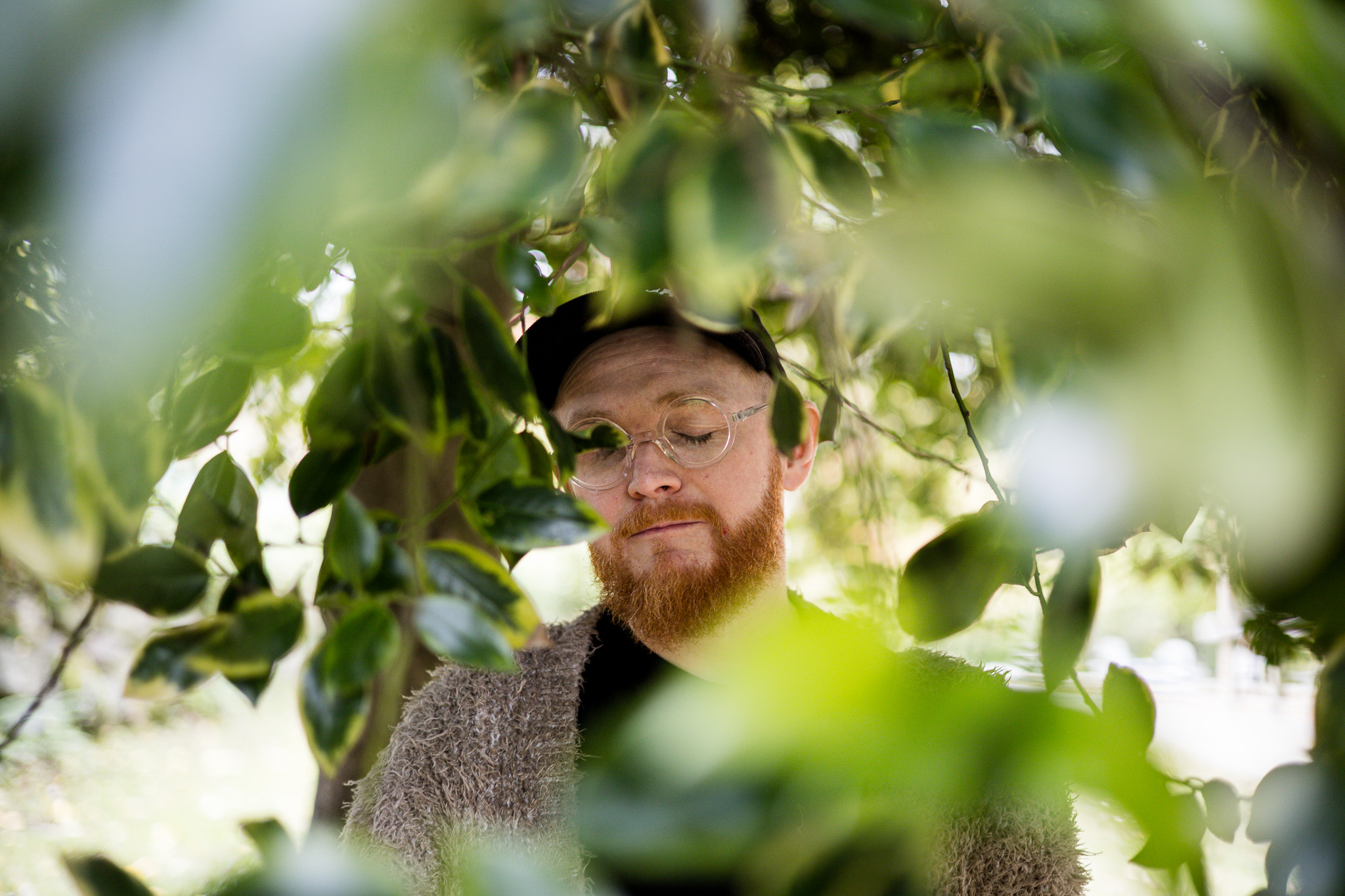
Chris Dahl:
I was the high-potential kid that was labelled a fuck-up. Obviously It wasn’t a label I chose or accepted for myself. Having something like that coming from family and friends didn’t feel great but I get it. From the outside it probably looked like I was choosing chaos for its own sake.
When my kiddo was diagnosed three years ago I started dipping into the neurodivergent community spaces online. It was a revelatory moment similar to finding the other punk and art weirdos in middle school.
To be clear, I don’t have a high opinion of pathologizing behaviours or the DSM but learning this one thing about myself, that I fit this label, gave me an explanation for my limitations. The chaos of my life and the choices I’d made finally had context beyond guilt and shame.
My hope is that this label and its context helps my kiddo feel validated in their own life, that they can be themself, and that they feel better about their life than I did mine.
I was the high-potential kid that was labelled a fuck-up. Obviously It wasn’t a label I chose or accepted for myself. Having something like that coming from family and friends didn’t feel great but I get it. From the outside it probably looked like I was choosing chaos for its own sake.
When my kiddo was diagnosed three years ago I started dipping into the neurodivergent community spaces online. It was a revelatory moment similar to finding the other punk and art weirdos in middle school.
To be clear, I don’t have a high opinion of pathologizing behaviours or the DSM but learning this one thing about myself, that I fit this label, gave me an explanation for my limitations. The chaos of my life and the choices I’d made finally had context beyond guilt and shame.
My hope is that this label and its context helps my kiddo feel validated in their own life, that they can be themself, and that they feel better about their life than I did mine.

Julia Monk:
ADHD, to me, is complex and deeply personal—there’s no one way it looks or feels. Growing up with lifelong ADHD but only being diagnosed at 34 meant spending years trying to understand why simple things like drinking enough water or flossing my teeth felt like mountains to climb. Having a name for it has been liberating—it gave me something tangible to learn about and work with, instead of stumbling in the dark. Along with ADHD, I also live with generalized anxiety, C-PTSD, and episodes of depression, like so many others in the neurodivergent community. Through diagnosis, CBT, ADHD-focused therapy groups, medication, and a lot of self-compassion, I’ve slowly learned how to quiet the noise of a million thoughts and take action instead of staying stuck in paralysis. Knowing I’m neurodivergent has shown me that there was never anything “wrong” with me—my brain is just wired differently because of genetics, childhood trauma, etc. With patience and kindness toward myself, I’ve gained more empathy and patience for others too. My journey isn’t perfect, but I’m grateful to still be here, still learning, still trying. If you’re struggling too—keep experimenting, keep surviving. What works is different for everyone, and that’s okay.
ADHD, to me, is complex and deeply personal—there’s no one way it looks or feels. Growing up with lifelong ADHD but only being diagnosed at 34 meant spending years trying to understand why simple things like drinking enough water or flossing my teeth felt like mountains to climb. Having a name for it has been liberating—it gave me something tangible to learn about and work with, instead of stumbling in the dark. Along with ADHD, I also live with generalized anxiety, C-PTSD, and episodes of depression, like so many others in the neurodivergent community. Through diagnosis, CBT, ADHD-focused therapy groups, medication, and a lot of self-compassion, I’ve slowly learned how to quiet the noise of a million thoughts and take action instead of staying stuck in paralysis. Knowing I’m neurodivergent has shown me that there was never anything “wrong” with me—my brain is just wired differently because of genetics, childhood trauma, etc. With patience and kindness toward myself, I’ve gained more empathy and patience for others too. My journey isn’t perfect, but I’m grateful to still be here, still learning, still trying. If you’re struggling too—keep experimenting, keep surviving. What works is different for everyone, and that’s okay.
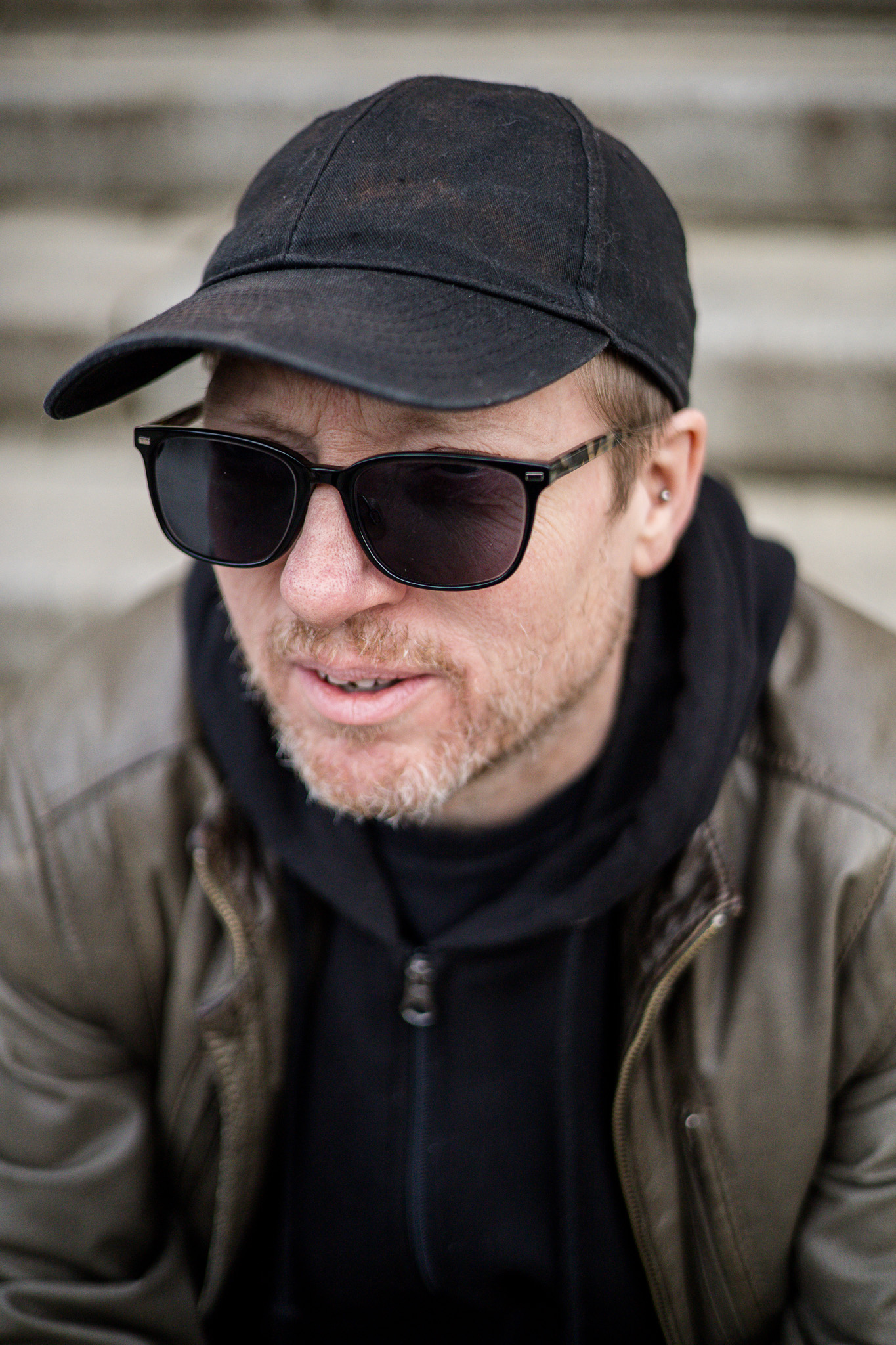
Allen Forrister:
I didn’t know much about ADHD until we started exploring our child’s neurodivergence. That’s when I started to see the traits in myself. Of course, being raised in an emotionally toxic era, especially for men, it took a couple years before I sought out a diagnosis. Having the diagnosis has ultimately been a source of validation for me. Just being able to see my processes objectively has given me the power to advocate for them in moments where I am expected to fit my square self into a societal round hole. I have been able to remove some of the “weirdo” stigma and can now appreciate these traits for the superpowers that they can be. I am still learning about and how to navigate this neurodivergence for a couple reasons: 1) being in my 50s, I have gotten this far coping on my own and it’s easy to lean into a “not broken, why fix it?” mentality. 2) I have a huge amount of distrust in the pharmaceutical industry and am hesitant to medicate especially when it’s the first and only option offered. Having the opportunity to share my experience but more importantly hear about others’ has opened me up a bit more and is giving me the courage to seek out strategies for a better way of living and embracing myself. ADHD to me is a label that removes stigma and can create community.
I didn’t know much about ADHD until we started exploring our child’s neurodivergence. That’s when I started to see the traits in myself. Of course, being raised in an emotionally toxic era, especially for men, it took a couple years before I sought out a diagnosis. Having the diagnosis has ultimately been a source of validation for me. Just being able to see my processes objectively has given me the power to advocate for them in moments where I am expected to fit my square self into a societal round hole. I have been able to remove some of the “weirdo” stigma and can now appreciate these traits for the superpowers that they can be. I am still learning about and how to navigate this neurodivergence for a couple reasons: 1) being in my 50s, I have gotten this far coping on my own and it’s easy to lean into a “not broken, why fix it?” mentality. 2) I have a huge amount of distrust in the pharmaceutical industry and am hesitant to medicate especially when it’s the first and only option offered. Having the opportunity to share my experience but more importantly hear about others’ has opened me up a bit more and is giving me the courage to seek out strategies for a better way of living and embracing myself. ADHD to me is a label that removes stigma and can create community.
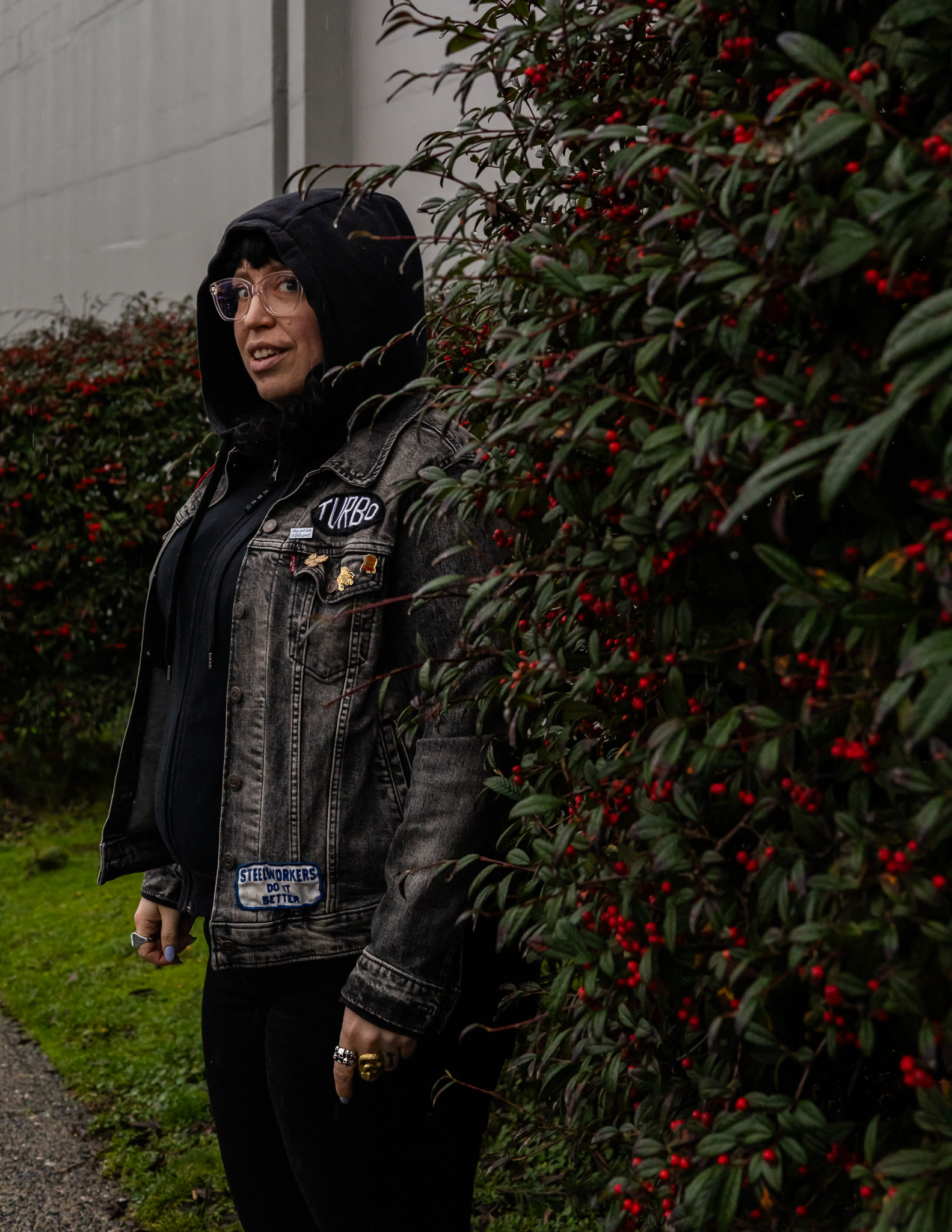
Melissa / Turbo:
In classic ADHD form, I have been thinking about what I’d like to say within this copy since I found out about the project. I’ve written it in my head about fourteen times over, I’ve opened my notes app, I’ve set time aside, I’ve made countless cups of coffee to enjoy while I hammer this together, and here I am, still writing it the day after my self imposed deadline of being done by the end of the weekend.
I often equate living with ADHD as having a brain comparable with a computer with too many screens open, or, my personal favourite, a plate of tangled, wet noodles…a noodle brain if you will. The first, being the reason things get forgotten, handed in late, internal screens get closed, minimized, shuffled off to the side, unplugged, plugged back in, back and forth forever, rinse, repeat, reboot. The latter is how I describe if I’m having a hard day trying to detangle things, or as a cute aside.
I was diagnosed late in life, much as it seems to be the pattern within this project, and with a lot of the other folks I talk to about neurodivergence. I was made aware of around the age of 36 by a close friend, he’d passed along the tests he was given as he received his formal diagnosis, and I scored pretty high. It took me some time to find one, but the year of my 40th birthday, my Doctor confirmed my suspicions, and I was eventually medicated. It’s had its ups and downs, and really, there is no silver bullet, no perfect fix, but life has become a little more manageable. Recognition being the most valuable tool of them all.
There was, and continues to be a bit of a grieving period that I have felt with being diagnosed late in life. As someone that struggled with substance abuse in an attempt to mask an unknown panic disorder, social struggles, and just day to day stresses, I often wonder what life might have been like had I been able to focus in school, get that degree, control impulses or just generally function with a clear, healthy noodle. Luckily I've managed to shed those substances, and have remained sober for almost six years.
I try not to dwell on regrets, instead, over the years following my diagnosis (and with the aid of professionals as well as self research) I have learned pattern recognition and how to take care of things like burn out, melt downs, or struggles. I have come to treasure this beautiful, noodly, creative little brain of mine and I honestly wouldn’t trade it for anything in the world.
This project is beautiful, and I look forward to reading the accounts of those who choose to share with Ryan. I encourage anyone reading this, if it sparks interest, go for it. Ryan is not only a talented human, but a safe, comforting person to share with. The most valuable tool I have found through this diagnosis and subsequent quest to navigate life, is the power of friendships and sharing with fellow noodle brains….We are not alone, we are not a burden, and we are all incredible in our own beautiful ways.
In classic ADHD form, I have been thinking about what I’d like to say within this copy since I found out about the project. I’ve written it in my head about fourteen times over, I’ve opened my notes app, I’ve set time aside, I’ve made countless cups of coffee to enjoy while I hammer this together, and here I am, still writing it the day after my self imposed deadline of being done by the end of the weekend.
I often equate living with ADHD as having a brain comparable with a computer with too many screens open, or, my personal favourite, a plate of tangled, wet noodles…a noodle brain if you will. The first, being the reason things get forgotten, handed in late, internal screens get closed, minimized, shuffled off to the side, unplugged, plugged back in, back and forth forever, rinse, repeat, reboot. The latter is how I describe if I’m having a hard day trying to detangle things, or as a cute aside.
I was diagnosed late in life, much as it seems to be the pattern within this project, and with a lot of the other folks I talk to about neurodivergence. I was made aware of around the age of 36 by a close friend, he’d passed along the tests he was given as he received his formal diagnosis, and I scored pretty high. It took me some time to find one, but the year of my 40th birthday, my Doctor confirmed my suspicions, and I was eventually medicated. It’s had its ups and downs, and really, there is no silver bullet, no perfect fix, but life has become a little more manageable. Recognition being the most valuable tool of them all.
There was, and continues to be a bit of a grieving period that I have felt with being diagnosed late in life. As someone that struggled with substance abuse in an attempt to mask an unknown panic disorder, social struggles, and just day to day stresses, I often wonder what life might have been like had I been able to focus in school, get that degree, control impulses or just generally function with a clear, healthy noodle. Luckily I've managed to shed those substances, and have remained sober for almost six years.
I try not to dwell on regrets, instead, over the years following my diagnosis (and with the aid of professionals as well as self research) I have learned pattern recognition and how to take care of things like burn out, melt downs, or struggles. I have come to treasure this beautiful, noodly, creative little brain of mine and I honestly wouldn’t trade it for anything in the world.
This project is beautiful, and I look forward to reading the accounts of those who choose to share with Ryan. I encourage anyone reading this, if it sparks interest, go for it. Ryan is not only a talented human, but a safe, comforting person to share with. The most valuable tool I have found through this diagnosis and subsequent quest to navigate life, is the power of friendships and sharing with fellow noodle brains….We are not alone, we are not a burden, and we are all incredible in our own beautiful ways.
